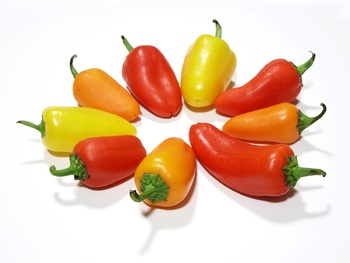Can food cure IBD?
While you may come across a number of diets claiming to cure IBD, The majority of these do not have sufficient evidence to support their claims. But there is considerable evidence that specific aspects of nutrition are important in IBD, and that, as with any ongoing health condition, it is vital to keep well nourished. So, it is important to eat as healthy and balanced a diet as possible.
The majority of these do not have sufficient evidence to support their claims. But there is considerable evidence that specific aspects of nutrition are important in IBD, and that, as with any ongoing health condition, it is vital to keep well nourished. So, it is important to eat as healthy and balanced a diet as possible.
Although diet may not cure IBD, some people may find that it helps to make small alterations to their diet. For example, some people have found that certain foods, for example spicy foods or dairy products, seem to trigger their symptoms or make them worse. On the other hand, some people may find they have no particular triggers - it varies from person to person. It may help to keep a food diary in order to keep track of what you eat and when your symptoms occur. However, if you find that cutting out foods makes no difference, you should add them back into your diet, because you do not want to miss out on important nutrients. It is important to get advice from your doctor or from a qualified dietitian before you make any significant changes. For more information on food diaries, see the section on Food diaries and food reintroduction plans.
In some cases, particularly after surgery, or if you have a stricture (narrowing) in your small intestine, you may need to go on a special diet, or avoid certain foods - for more information see the sections on Eating with a stricture and Eating after surgery.
For some people, particularly children and those with Crohn’s Disease, it may be helpful to go on a liquid diet - this is called ‘exclusive enteral nutrition’. For more information on this, see the section on Nutritional treatment.
about our daily lives, and to help our bodies grow and repair themselves. It is important that we eat a healthy balanced diet in order to receive all the nutrients our bodies require.
There are five main groups of nutrients:
- Carbohydrates - a major source of energy. There are two main types of carbohydrates - simple and complex. Simple carbohydrates are sugars, and can be found in fruit, vegetables and milk, as well as in confectionery, cakes and biscuits. Complex carbohydrates include starch and fibre, and are found in foods such as pasta, potatoes and bread.
- Protein - important for the growth and repair of body tissues, as well as being used to make enzymes, hormones and muscle. Protein can be found in meat, poultry, eggs, cheese, beans, nuts and pulses.
- Fat - a concentrated energy source. It also helps protect our internal organs, and is required for our glandular and immune systems, and to help absorb certain vitamins. Fat can be found in foods such as meat and dairy products.
- Vitamins - a group of nutrients found in very small amounts in food. They are important for cell function, growth and development. There are 13 essential vitamins, each vitamin has an important job in the body. An example is vitamin C, which is important for healthy teeth and gums. It also helps the body to absorb iron, and helps with wound healing.
- Minerals - chemical elements found in food. They are needed in small amounts to help the body stay strong and function properly. Examples include calcium which is needed for strong bones, and iron which is needed for red blood cells.









